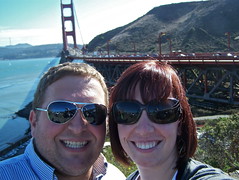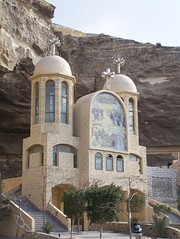Now among those who went up to worship at the festival were some Greeks. They came to Philip, who was from Bethsaida in Galilee, and said to him, ‘Sir, we wish to see Jesus.’ Philip went and told Andrew; then Andrew and Philip went and told Jesus. Jesus answered them, ‘The hour has come for the Son of Man to be glorified. Very truly, I tell you, unless a grain of wheat falls into the earth and dies, it remains just a single grain; but if it dies, it bears much fruit. Those who love their life lose it, and those who hate their life in this world will keep it for eternal life.Whoever serves me must follow me, and where I am, there will my servant be also. Whoever serves me, the Father will honor. ‘Now my soul is troubled. And what should I say—“Father, save me from this hour”? No, it is for this reason that I have come to this hour. Father, glorify your name.’ Then a voice came from heaven, ‘I have glorified it, and I will glorify it again.’ The crowd standing there heard it and said that it was thunder. Others said, ‘An angel has spoken to him.’ Jesus answered, ‘This voice has come for your sake, not for mine. Now is the judgement of this world; now the ruler of this world will be driven out.And I, when I am lifted up from the earth, will draw all people to myself.’He said this to indicate the kind of death he was to die.
– John 12:20-33
Dear friends in Christ, grace and peace to you from God our Creator and from our Lord and Savior Jesus the Christ. Amen.
I grew up idolizing Michael Jordan. I think anyone who was a kid during Jordan’s career had this fascination with him that we just couldn’t shake. I even watched the AA minor league team of the Chicago White Sox, the Birmingham Barons. And for those of you who remember Jordan’s baseball days, they weren’t pretty. But I watched because I had a complete fascination with him.
That all ended a few years ago when he was inducted into the Hall of Fame. On a night that was meant for celebration and a fond sense of nostalgia, Jordan got up to give a speech that was as egomaniacal as ever. It became very clear that he was using that platform to settle scores. He called out his on-court rivals and taunted them with petty grievances and wise cracks. This is clearly a man who had not forgotten ANY of the transgressions that people had done to him over the years.
In our text from Jeremiah today, Michael Jordan is like Israel. Now, follow me for a bit on this one. In our passage from Jeremiah today, Israel seems to hang on to old transgressions. They neither forgive, nor forget. But then God comes to establish a new covenant with them. And in this new covenant, God not only forgives, but he “remembers their sin no more”.
In essence, God does what his people cannot do. God forgets. In response to their failures and shortcomings, God refuses to recognize them. In response to their infidelity and waywardness, God calls them faithful. In response to their sin and brokenness and very real and despicable wretchedness, God’s memory has to be pushed and prodded to find any recollection. God memory is wiped clean.
But there’s a part of this that’s so hard. We cherish our memories so much that when even the slightest slip of our brain fails to recall something, it can make us mad. How many times have you had something – maybe a name or a memory – right on the tip of your tongue that it’s driven you to near madness to recall it. The problem is that our memories carry so much of our identity. We fear that if we lose our memory, we’ll lose our identities as well. And it’s here that the words of Jesus in the gospel of John come to us.
In our verses from John, the Greeks confront Jesus. They come out of nowhere and want to see Jesus. Almost nothing is said about them or why they ask Philip or why there is this whole run around rather than going straight to Jesus. It’s important to note here that by “Greeks”, the designation here is for foreigners. Gentile is the biblical term, but Greeks go along with it – basically what it means is non-Jewish foreigners. John emphasizes the always-expanding reach of the gospel. People are beginning to come from literally the ends of the earth to see Jesus.
The Greeks are the outsiders in this story. Jesus knows that when they come to see Jesus that the message really has reached the ends of the earth. This new covenant talked about in Jeremiah and found in the person of Jesus is unlike anything we’ve ever experienced before. Much like how just a few weeks ago, we heard Jesus talking of the temple of his body, Jeremiah dislocates the presence of God as well. God is now outside of the stone temples, and is in the community, moving, breathing, and living among us.
This is meant to break down the walls that we build up between insider and outsider. We build these walls as a way of remembering past transgressions. When we hang on to those things that God has forgotten long ago. This is where the insider-outsider thing becomes so dangerous. We build walls to keep people out. Most often it’s a power play. The insiders have the power and do everything they can to stay the insiders so they can keep the power.
 I’ve been thinking a lot about this insider-outsider thing with this past week with the Trayvon Martin story that’s been gaining national prominence. Trayvon Martin was a 17-year old African American boy visiting his dad in a gated community in suburban Orlando. He was on the way back from a 7-11 with an iced tea and a pack of Skittles in hand when a volunteer neighborhood watchman named George Zimmerman started following him – assuming he was an outsider. The next few details are a little hazy. But what we do know is that Zimmerman kept pursuing the boy. Some witnesses heard a struggle, Zimmerman fired the 9mm handgun he was carrying and the 17-year old boy was dead before the authorities even got there. Because he claimed self-defense, and Florida has some interesting laws, Zimmerman hasn’t been arrested or charged with the murder. But no matter what winds up happening, the fact remains that a boy is dead because he was perceived by an insider to be an outsider. And because guns are more powerful than Skittles.
I’ve been thinking a lot about this insider-outsider thing with this past week with the Trayvon Martin story that’s been gaining national prominence. Trayvon Martin was a 17-year old African American boy visiting his dad in a gated community in suburban Orlando. He was on the way back from a 7-11 with an iced tea and a pack of Skittles in hand when a volunteer neighborhood watchman named George Zimmerman started following him – assuming he was an outsider. The next few details are a little hazy. But what we do know is that Zimmerman kept pursuing the boy. Some witnesses heard a struggle, Zimmerman fired the 9mm handgun he was carrying and the 17-year old boy was dead before the authorities even got there. Because he claimed self-defense, and Florida has some interesting laws, Zimmerman hasn’t been arrested or charged with the murder. But no matter what winds up happening, the fact remains that a boy is dead because he was perceived by an insider to be an outsider. And because guns are more powerful than Skittles.
As I’ve been getting this sermon ready this week, and reading all about this tragedy, I’m caught by the fact that the Greeks in our gospel come to Philip. Then Philip goes to Andrew. And then they go to Jesus. It’s as if these disciples are unsure if they should let the Greeks get to Jesus. The disciples are contemplating restricting access to these outsiders. But then when they bring it to Jesus, he realizes it’s time to change course. “The hour has come,” Jesus says, “for the Son of Man to be glorified…. And I, when I am lifted up, will draw all people to myself.” All people: insider and outsider. Jew and Greek. Male and female. Young and old. Democrat and Republican. Rich and poor. Are we getting this? This is a sign of the new covenant that is written on our hearts, that all people are drawn to God.
I think about this insider-outsider question all the time with confirmation and working with youth. A lot of times our focus is on teaching them the information of the faith so they, too, can be an insider. But one of the things I’m constantly finding is that the questions that teenagers these days are asking are a lot more about why the outsiders are outside. About why the walls exist at all. We’re communicating on two different levels. We’re trying to keep them in the classroom telling them the salient information about being an insider, while they’re constantly looking out the window wondering why the outsiders can’t be let in. I often wonder if we’re equipping them to be able to feel God’s presence over the clamor of all the demands placed on them – school, sports, jobs, money, and family? Can they hold their own in the struggle between a rigid, unflinching, religious fundamentalism and allure of an apathetic, untended faith? Are we, as a community, equipping them with the ability to discern how to live a life of faith in a 4G world?
We’ve been having these conversations. We know that unless we pass on the faith to following generations, it’s going to whither and die. It means opening up our community to see and experience Jesus again, as the One who makes all things new, as the One who creates something out of nothing. As the One who takes disobedience and unfaithfulness and creates a new covenant of forgetfulness and forgiveness.
It means moving in new ways as a community. We’ve started to take some of these steps in things like the BeTween group that Louise has started. And re-thinking some of the ways we do worship with the Saturday evening service. Some new ways of outreach in the ways that Leonard is helping us. We’ve taken the beginning steps in addressing some of these issues.
But we need people who genuinely care for our children and our children’s children. We need people who are willing to share their stories of faith. We need people who are not just willing to pass along the information of the faith – the X’s and O’s of what it means to believe, but to tell stories of their encounters with the living God. And I know this may take stepping out of our comfort zone. It may take a little disruption from the status quo of our lives. But this is how God works. God brings the Greeks – the outsiders, the foreigners, the people who didn’t know Jesus – to Israel to let Jesus know that his time was coming near.
I firmly believe that God brings us together into one body, one community, regardless of age so that we can tell the stories that are important to us, the stories that give us life so that we may be living examples of God’s abundant life on this Earth. In his journey to the cross, Jesus invites us into a disruption of our tightly sealed, self-contained, seed-like identity into a God-given identity, that blossoms and blooms in communion with one another. Amen.
Cheers,
Eric

















